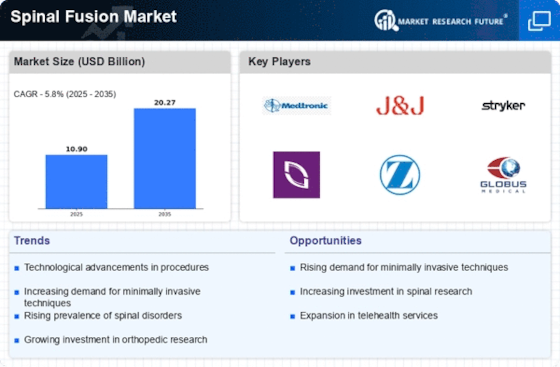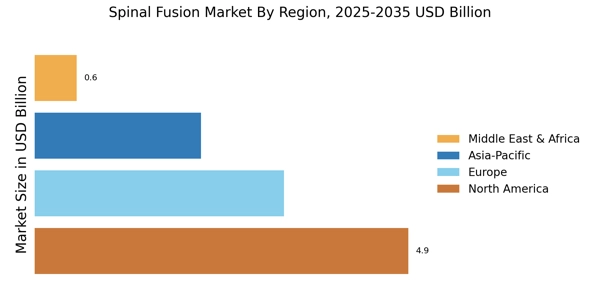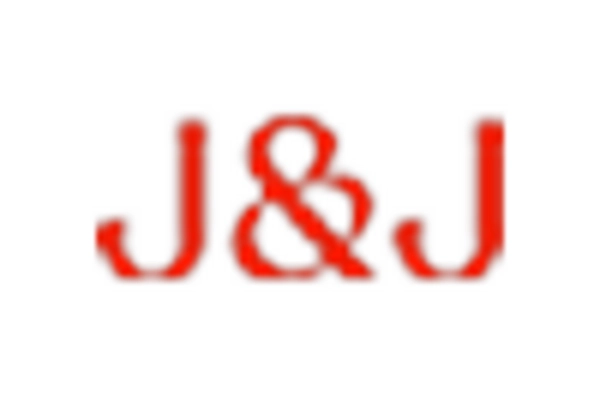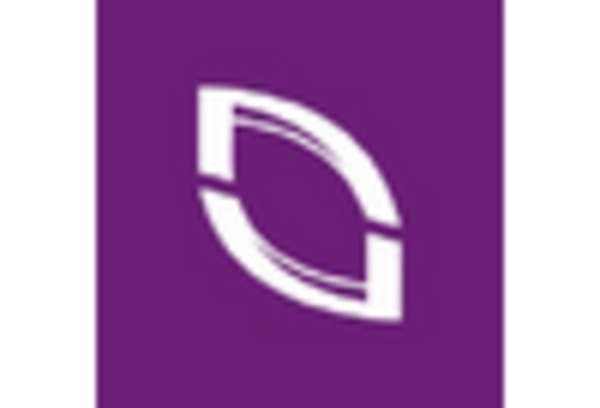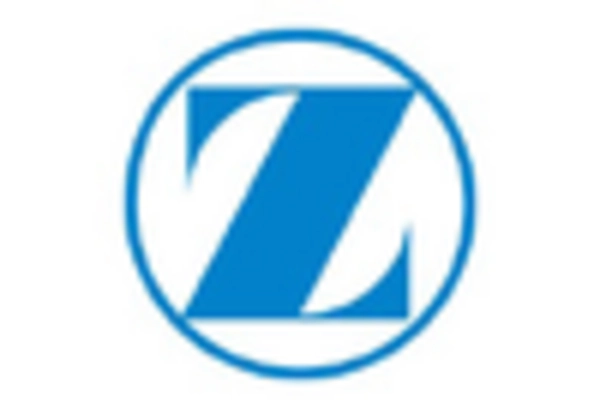Rising Number of Sports Injuries
The increasing incidence of sports-related injuries is emerging as a notable driver of the Spinal Fusion Market. Athletes and active individuals are susceptible to spinal injuries, which often necessitate surgical intervention, including spinal fusion. As participation in sports and physical activities continues to rise, so does the likelihood of injuries that require surgical correction. Data suggests that sports injuries account for a significant percentage of spinal surgeries, with a notable increase in cases among younger populations. This trend is likely to propel the demand for spinal fusion procedures, as athletes seek to return to their activities as quickly and safely as possible. The rising number of sports injuries is expected to have a substantial impact on the growth of the Spinal Fusion Market.
Increasing Healthcare Expenditure
The rise in healthcare expenditure across various regions is a significant driver of the Spinal Fusion Market. As healthcare systems allocate more resources to surgical interventions, the availability of advanced treatment options for spinal disorders is expanding. Increased funding allows for the adoption of innovative technologies and improved surgical facilities, which can enhance patient care. Data indicates that healthcare spending is projected to grow at a rate of approximately 7% annually, reflecting a commitment to improving surgical outcomes. This trend is likely to facilitate greater access to spinal fusion procedures, thereby stimulating market growth. The correlation between rising healthcare expenditure and the demand for spinal fusion surgeries underscores the importance of financial investment in the advancement of the Spinal Fusion Market.
Rising Incidence of Spinal Disorders
The increasing prevalence of spinal disorders, such as degenerative disc disease and spinal stenosis, is a primary driver of the Spinal Fusion Market. As populations age, the incidence of these conditions tends to rise, leading to a greater demand for surgical interventions. According to recent data, spinal disorders affect millions worldwide, with estimates suggesting that approximately 80% of individuals experience back pain at some point in their lives. This growing patient population necessitates effective treatment options, thereby propelling the demand for spinal fusion procedures. Furthermore, advancements in surgical techniques and technologies are likely to enhance patient outcomes, making spinal fusion a preferred choice among healthcare providers. Consequently, the rising incidence of spinal disorders is expected to significantly influence the growth trajectory of the Spinal Fusion Market.
Growing Awareness of Treatment Options
The growing awareness of treatment options for spinal disorders is influencing the Spinal Fusion Market. Patients are becoming more informed about their conditions and the available surgical interventions, leading to increased demand for spinal fusion procedures. Educational initiatives and outreach programs by healthcare providers are contributing to this awareness, highlighting the benefits and risks associated with spinal fusion. As patients seek effective solutions for chronic back pain and mobility issues, the demand for spinal fusion surgeries is likely to rise. Furthermore, the proliferation of online health resources and patient support groups is empowering individuals to make informed decisions regarding their treatment options. This heightened awareness is expected to drive the growth of the Spinal Fusion Market in the foreseeable future.
Technological Innovations in Surgical Procedures
Technological advancements in surgical procedures are transforming the Spinal Fusion Market. Innovations such as robotic-assisted surgery, navigation systems, and advanced imaging techniques are enhancing the precision and safety of spinal fusion surgeries. These technologies not only improve surgical outcomes but also reduce recovery times, which is appealing to both patients and healthcare providers. For instance, the integration of minimally invasive techniques has been shown to decrease hospital stays and postoperative complications. As a result, the adoption of these technologies is likely to drive market growth, with projections indicating a compound annual growth rate of over 5% in the coming years. The continuous evolution of surgical technologies is expected to play a pivotal role in shaping the future of the Spinal Fusion Market.


